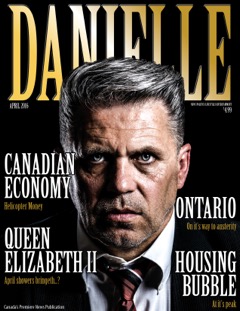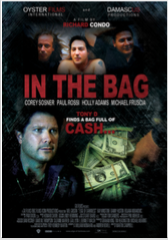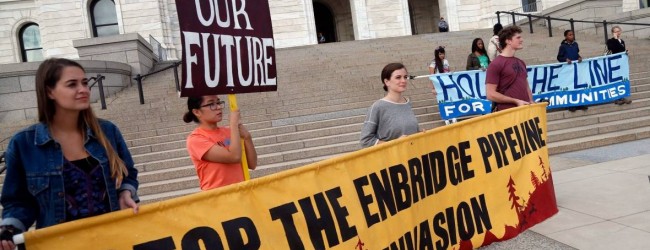Line 3 was supposed to be simple.
Enbridge’s oil pipeline was old, unreliable and prone to leaking. It’s proposed replacement had federal approval in Canada and a presidential permit in the United States.
That’s why compared to the other oil export projects proposed from Alberta — TransCanada’s Keystone XL and Kinder Morgan’s Trans Mountain expansion — this pipeline was assumed to face far fewer hurdles.
However, the oilpatch is witnessing how even a project considered straightforward still faces significant delays and a difficult regulatory process.
And the real protests haven’t even begun.
“I would have thought Line 3 would have had the easier time moving forward,” said Jennifer Rowland, a senior equity analyst with Edward Jones, based in St. Louis. “And yet, a line like that even faces so much opposition. It speaks to the mindset and attitude toward pipelines.”
- U.S. judge gives conditional green light to Line 3 pipeline project
- 5 things to know about the Trans Mountain pipeline battle
Because of the pipeline’s age and condition, Line 3 operates at a reduced rate. The replacement project would allow the line to pump a maximum of 760,000 barrels per day, up from the 390,000 barrels of oil it currently moves from Alberta to Michigan.
Judge’s report
This week, an administrative law judge in Minnesota delivered a report for the state Public Utilities Commission (PUC) on Enbridge’s application to replace and expand the Line 3 pipeline. Instead of providing a clear verdict about whether the pipeline should be approved, the report complicates the situation even further.
The PUC will make the final decision on the project in June. Experts say the commission often follows the recommendations it receives.
“There’s a ton riding on this project — not only for Enbridge, but for the whole basin, in general, in Western Canada. It’s a very important project,” said Patrick Kenny, an analyst with National Bank in Calgary.
The Canadian portion of the project will cost an estimated $5.3 billion Cdn, while the American section has a price tag of $3.6 billion Cdn.
The judge suggested Enbridge construct a new Line 3 parallel to the existing pipeline, which travels through territories of the Leech Lake Band of Ojibwe and the Fond du Lac Band of Lake Superior Chippewa. Both Minnesota Indigenous groups oppose the project and both have existing agreements with Enbridge that expire around 2029.
“That definitely creates a pretty big wrinkle here as far as what the regulatory agency might decide to do in June,” said Rowland. “There is opposition to the pipeline in some of those tribal areas that the existing corridor already goes through. So I think for the sake of speed of permitting, they prefer a different route.”
- Oil surges toward $70 and stirs dreams of $100
- The new Alberta alienation: Resenting East and West
Enbridge had suggested a different path through the state, which would reduce the environmental impact, the company said.
Removing old pipe
According to the report, the existing pipeline corridor would isolate the risk of a spill, prevent the establishment of a new pipeline corridor in an environmentally sensitive part of the state and “prevent the abandonment of nearly 300 miles of steel pipeline.”
Enbridge proposed to clean and decommission the existing 1960s line before leaving the steel pipe in the ground. However, the judge recommends Enbridge remove the old pipe, which would increase costs for the company.
Enbridge said it is pleased with the report, but needed more time to fully examine it. On Tuesday, the day after the report was released, the company’s shares fell more than five per cent.
The bright spot for Enbridge is the judge’s belief the new pipeline is needed in Minnesota.
Replacement ‘reasonable’ action
The report states Line 3 is “old, needs significant repair, and poses significant integrity concerns for the State. Accordingly, the Judge finds that replacement of the line is a reasonable and prudent action.”
Enbridge now waits for the utility commission’s final decision in two months, before deciding its next step. It’s deeply committed to the project as construction began on the project in Canada last summer. The pipeline is already two years behind schedule and the delays in Minnesota may only increase further.
If Enbridge is ordered to construct across the reservations of two American Indigenous bands, both of which are opposed to any new pipeline, the company could face violent protests similar to those in neighbouring North Dakota last year during construction of the Dakota Access pipeline.
“That should be expected,” said Rowland. “Even a pipeline that has all of its permits in place is still susceptible to the risk of delays that protesters can create, like we saw with Dakota Access.”
Line 3 proves how incredibly difficult constructing new pipelines has become and the notion of a simple, straightforward proposal no longer exists.
- Oilsands research could be ‘game changer’ for renewable energy

















